Title: Silent but Deadly: Mitigating HVAC Noise in Your Home
Introduction
HVAC (heating, ventilation, and air conditioning) systems are integral components of every home, particularly with the ever-changing weather conditions. These systems ensure a comfortable temperature and indoor air quality. However, they can also be a source of unwanted noise which can disrupt the tranquility of your home. This noise can be not only annoying but, in extreme cases, detrimental to your health. The silent but deadly effects of HVAC noise can lead to stress, sleep disturbances, and decreased cognitive function. As such, mitigating HVAC noise in your home is imperative.
Understanding the Source
Just like any other mechanical device, HVAC systems will always have a certain level of noise. Some common sources of HVAC noise include the compressor, fans, ductwork, and vibration noise exerted by the whole system. However, unusual sounds like rattling, buzzing, or humming could be an early sign of system malfunction or component failure. Regular maintenance checks can help keep these noises at bay and your system running smoothly.
The Silent Killer: HVAC Noise
Prolonged exposure to HVAC noise can have deadly consequences, impacting overall well-being. It may lead to chronic annoyance, hearing impairment, sleep disorders, hypertension, and other cardiovascular diseases. Even the noise perceived as non-bothersome over time can become a catalyst for stress-related health issues. Hence, it’s essential to keep HVAC noise to a minimum.
Mitigating HVAC Noise
To ensure a silent yet efficient HVAC system, several strategies can be employed:
1. Regular Maintenance: To prevent excessive noise, it is crucial to perform regular HVAC system maintenance. Regular check-ups can help identify problems early before they escalate into larger, noisier issues.
2. Installation of Noise Barriers: Noise barriers or sound blankets can help to absorb the sound produced by the compressor or external units of your system, thus reducing overall noise.
3. Duct Insulation: Proper insulation of the ductwork can help to minimize the amount of noise transmitted via the air ducts throughout your home.
4. Use Noise Attenuating Devices: These devices such as silencers and acoustic liners can be inserted in the ducts to reduce noise.
5. Anti-Vibration Mounts: The installation of these mounts can lessen the noise produced by the vibrations of the HVAC unit.
6. Proper Siting: Place your outdoor HVAC units away from windows and doors, and if possible, install them on the side of the house where they will least disturb household and neighbors.
7. Upgrade Your System: Older HVAC systems often create more noise. If the system is aging and causing excessive noise, it may be time to invest in a new, quieter model.
Conclusion
HVAC noise should not be ignored, given that it can impact significantly on your comfort, and more notably, your health. Various strategies can be employed to mitigate this noise, from regular maintenance to insulation and suitable siting. Consulting with a qualified HVAC professional can provide advice tailored specifically to your situation, ensuring that your HVAC system is silent but efficient and far from deadly.

